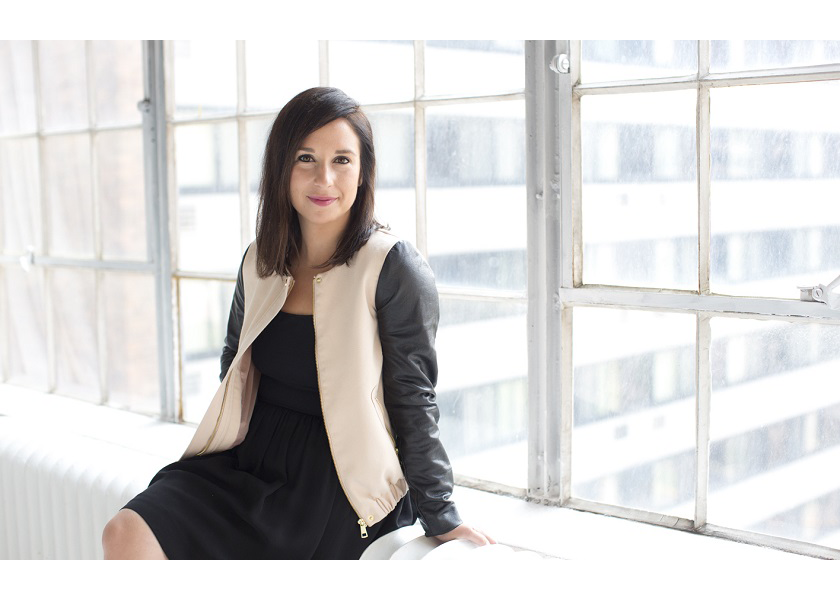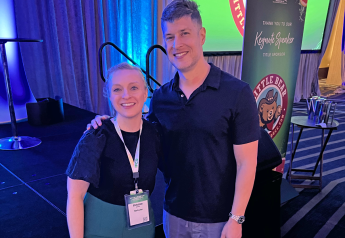Southern Exposure speaker highlights generational differences in the workforce

ORLANDO, Fla. - Building the next generation of leaders in the produce industry starts with the simple truth that what motivates a baby boomer isn’t the same as what moves Gen X, millennial and Gen Z workers, says Kim Lear.
“Every generation brings something unique,” said Lear, founder and content director of research and public speaking firm Inlay Insights. The goal for employers now is to optimize the multigenerational work environment, she said.
Lear presented her insights on building leadership within organizations during a March 4 session at the Southeast Produce Council’s Southern Exposure conference.
Each member of a generation has experienced formative events in their teenage years that shape their thinking, Lear said. Sociology can reveal broader macrotrends that help point to reasons behind shifts in cultural norms over time.
“We're trying to capture the story of shared culture, and what that means for all of us in the workplace and marketplace,” she said. “The question is, who are we? And what does that mean for the way that we work together?”
Boomer time
Baby boomers, born between 1946 and 1964, are often characterized as too old to learn new skills, but Lear noted that there has been a dramatic rise in education spending in the 50 years and older demographic between 1990 and 2015.
Reflecting their thirst for education and interest in art, more Baby Boomers are seeking out college towns to retire rather than sunbelt states.
During the pandemic, boomers were quick to adapt and use technology to work from home, she said.
“We live in ageist country,” she said, stating that baby boomers are much more adaptable than perceived.
Baby boomers have lived in a time of momentous change and progress, with their optimistic perspective shaped by the capstone event of NASA’s successful manned mission to the moon.
With about 10,000 of their numbers retiring every day, baby boomers now can play a key role in preparing the next generation for leadership, she said.
While some baby boomers feel that mentoring should look like sitting in a leather chair and dispensing wisdom to young people at their feet, Lear said mentorship is about seeing something in someone that they don’t see in themselves.
Lear said effective mentors should learn to look at their careers in less sentimental ways and seek to pull out life lessons in a way that helps the next generation to lead. Mentoring should not aim to create a “mini-me,” but rather find a place of connection.
Gen Xers
Generation X workers, born between 1965 and 1979, experienced the Challenger shuttle explosion, the fall of the Berlin Wall and the emergence of 24-hour news channels, MTV and more. Divorce rates doubled during the Gen X birth years.
Unregulated television advertising and heavy television consumption resulted in the formation of skeptical Gen X consumers who now call everything into question. To this day, Lear said Gen X consumers have an aversion to traditional sales tactics, she said. Many Gen X consumers are fiercely independent, skeptical and have an entrepreneurial bent, she said.
Honest, direct and unfiltered communication works best for Gen X workers, she said.
Gen X parents are often now the “sandwich” generation, with responsibilities to care for their parents and school-aged children in their home.
Sometimes the best gift for those employees is to give them back some of their time, Lear said.
“How are we optimizing people’s time?” she said, also noting the importance of clear direction, not ambiguity, in email communications.
Millennial moment
Millennial generation workers, born between 1980 and 1995, experienced 9/11 as a formative event, in addition to the Oklahoma City domestic terror bombing, school shootings in Columbine and Virginia Tech, and other mass shootings. Those events affected the psychology of the young and caused parents to hold their children tighter.
At the same time, more adults were telling millennials that their voice mattered. More families had dual-income households. Words that describe millennials after 9/11 include "collaborative," "empowered," "risk-averse" and "in search of meaning."
Lear said American culture somewhat quickly shifted from a society where children should be “seen and not heard” to a society that put a premium on youth voices and a collaborative family structure.
Fathers born in the millennial generation say they spend more time on housework and helping to raise kids. Fathers in 2018 said they spent 18 hours per week with parenting duties, up from 6.5 hours per week reported by fathers in 1965.
Providing parents with more downtime with their kids is one way to meet the needs of millennials, Lear said.
Z time
Generation Z, born from 1996 to 2010, has grown up in an era of fairly extreme wealth inequality.
Gen X parents and their Gen Z children tend to be close, she said. Some Fortune 100 companies have prepared “parent packs” to help answer questions for parents of Gen Z recruits.
Gen Z workers have a greater focus on well-being than previous generations, Lear said. The idea that, “if you don’t make time for wellness, you will be forced to make time for illness,” resonates with that generation.
The idea that work should contribute to well-being is fairly new but will likely gain momentum, Lear said.
“How will we align overall well-being with the way we work?”
In general, the tolerance for suboptimal work experiences is at an all-time low, Lear said.
At the same time, meaningful relationship-building can occur in the office context with “suboptimal experiences.”
“It is finding a balance between more effective and perfect, and (finding) where do we lean into suboptimal experiences,” Lear said.
It is important that companies show younger workers that bad managers are not tolerated, she said, as younger workers are more prone to leave a company in which bad managerial behavior is tolerated.
Lear said no one single age bracket should be the sole focus of corporate culture.
For example, companies should not always try to accommodate just the needs of 22-year-old workers, but instead leave room for all to coexist. “Everyone has to bend a little bit,” she said.







